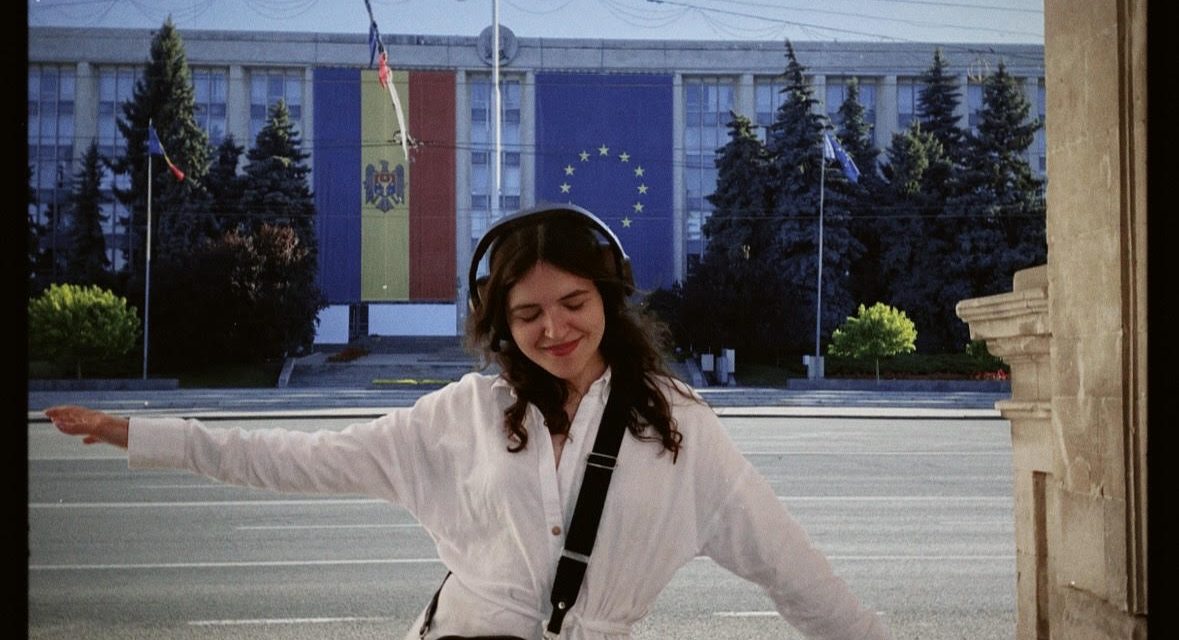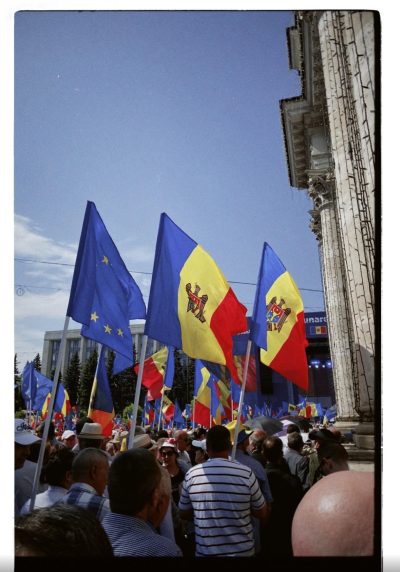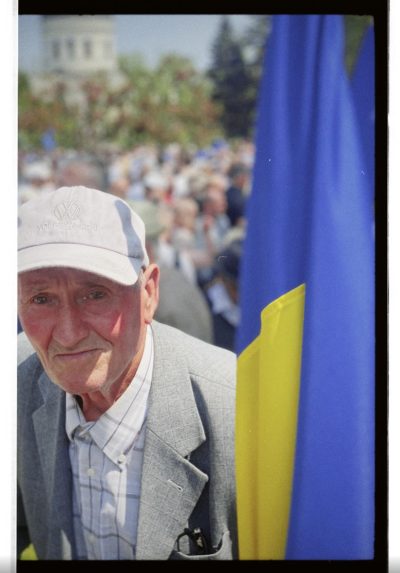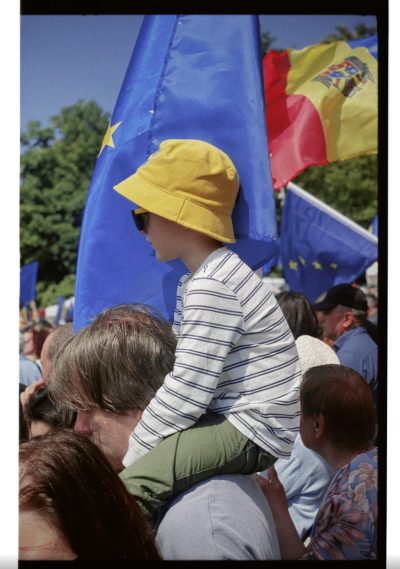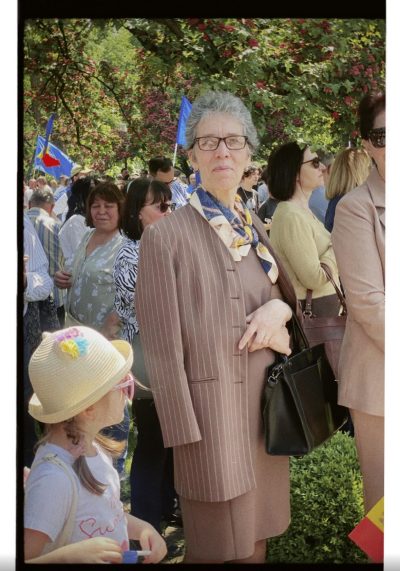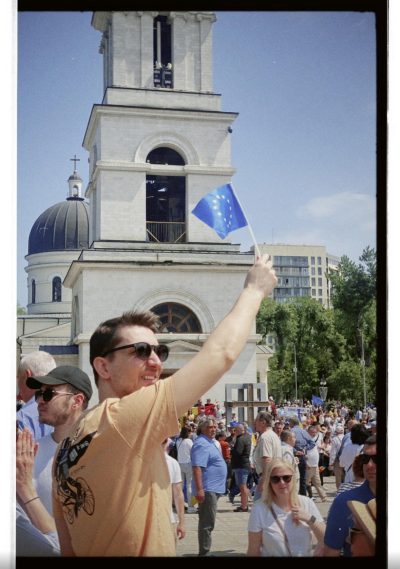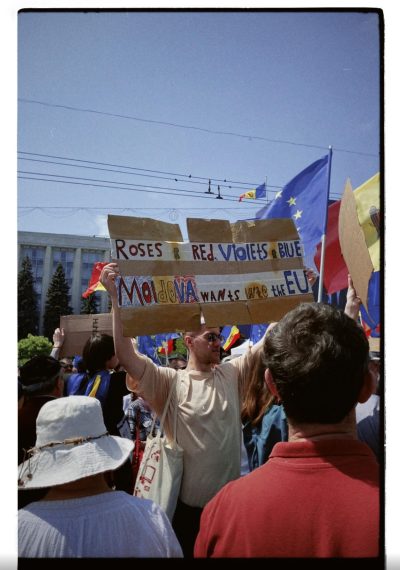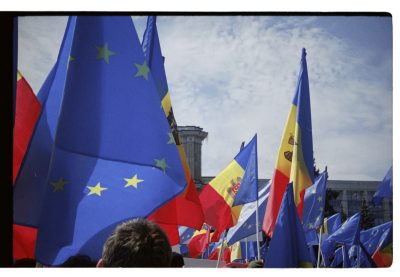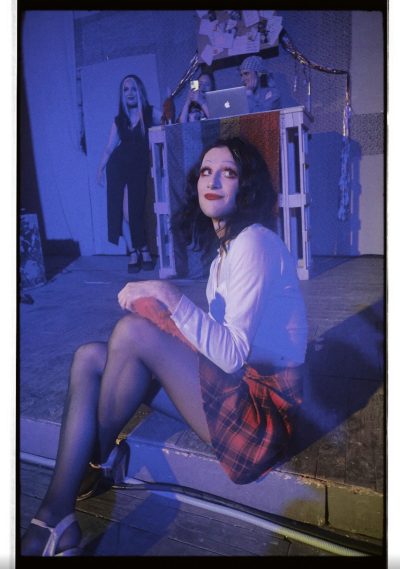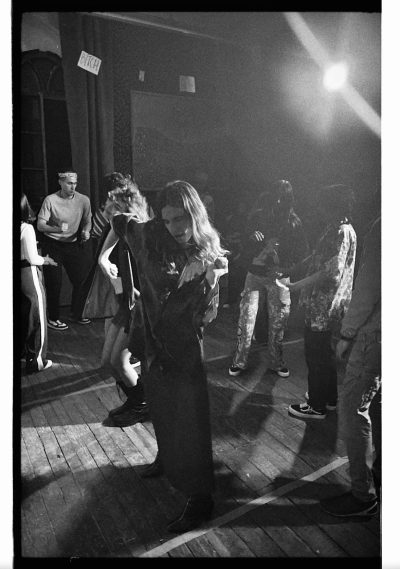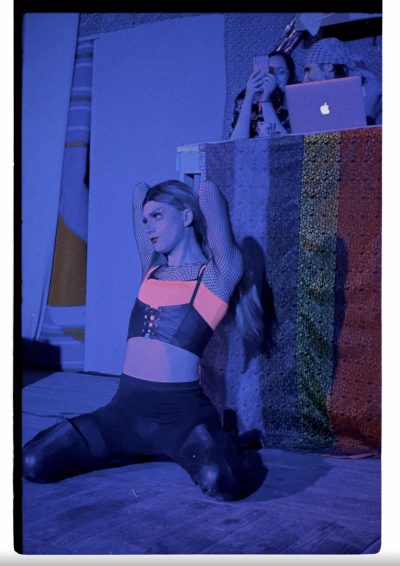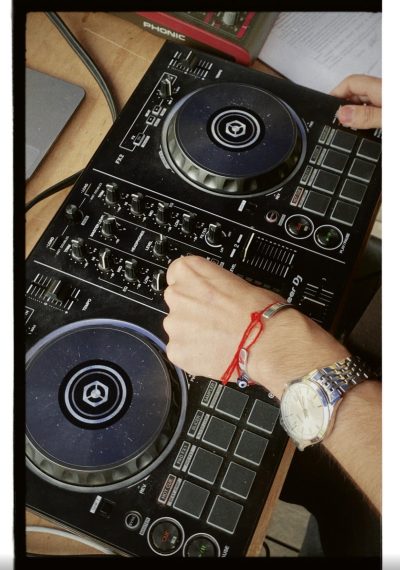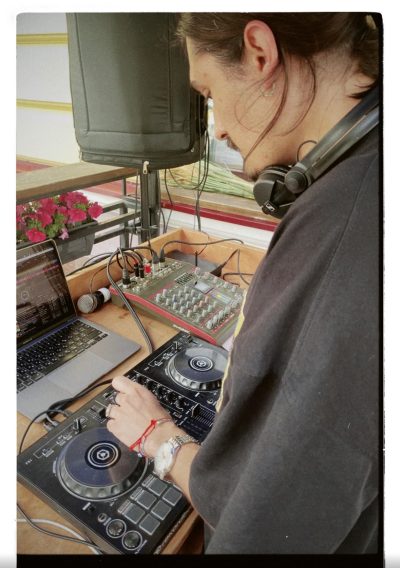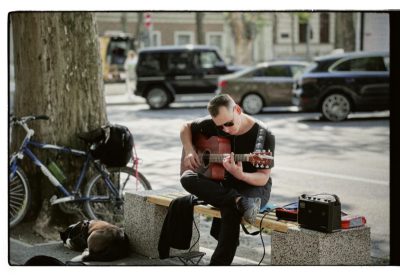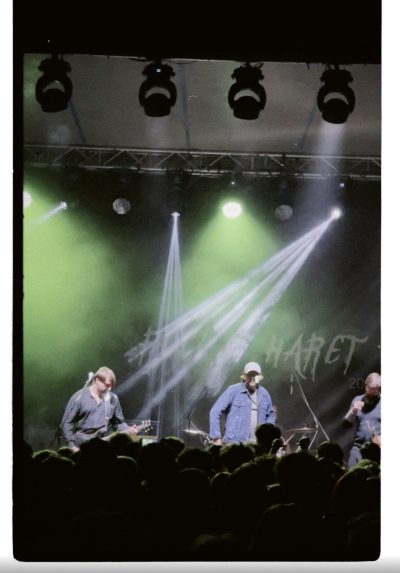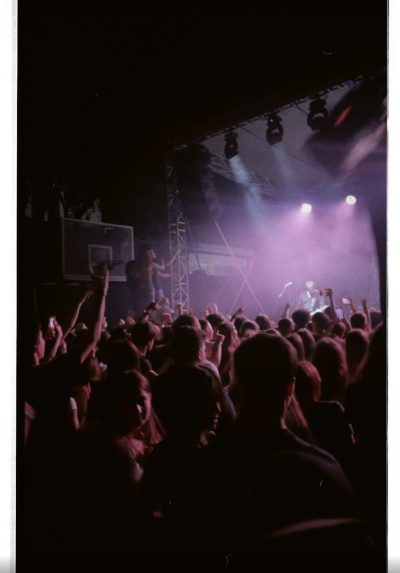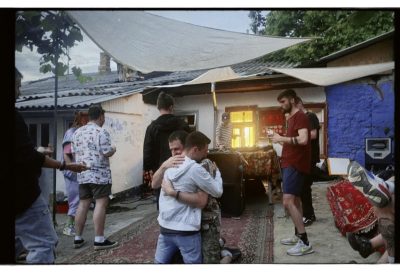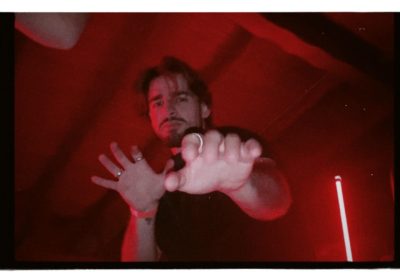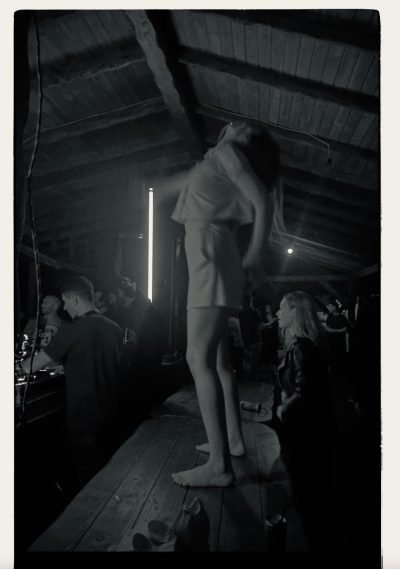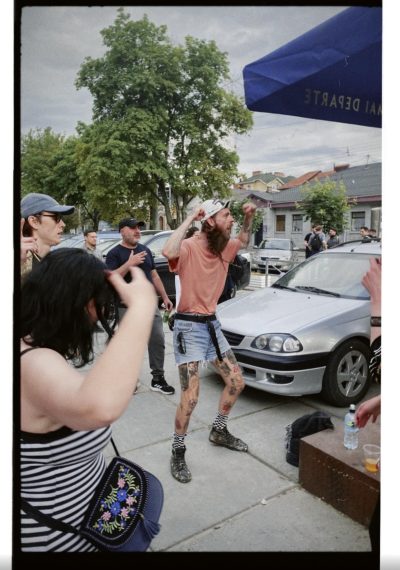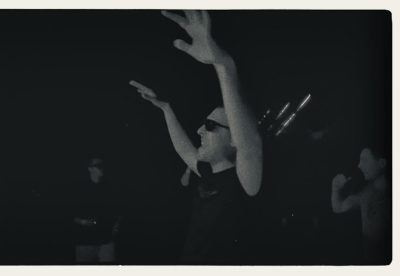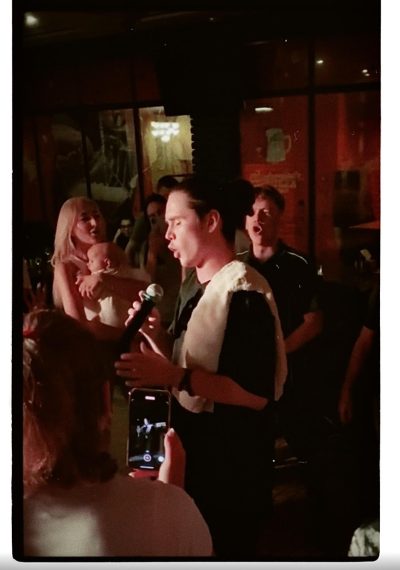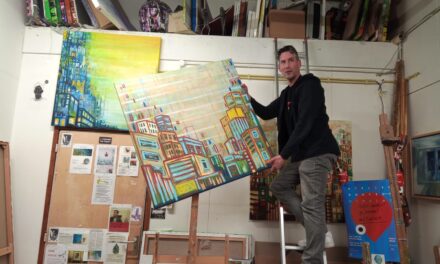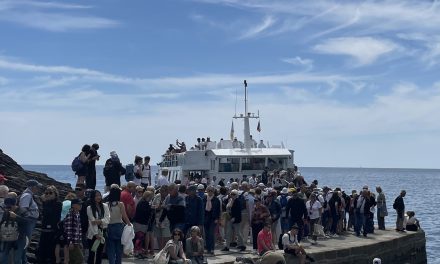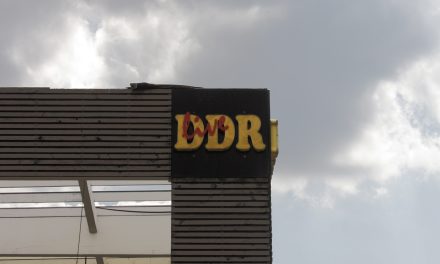Chișinău, Moldova’s capital, is a small eastern European city that has been making waves in all the creative industries, especially in the music one. As the country undergoes a process of joining the European Union (EU), the context of integration has started to significantly influence the music department. Moldova’s aspirations to become a member of EU have sparked a transformative shift, paving the way for an interesting and diverse music scene. But how exactly the European values and the context of joining the EU transform the music landscape of the city, and create a harmonious bridge for artists to promote their work outside the country, while bringing a piece of Europe home?
Moldova’s heart, Chișinău, is mostly known for its rich history, architecture and culture, while still being one of the least visited capitals in Europe. On the 21st of May 2023, the city’s National Square witnessed an extraordinary event that marked a crucial moment in Moldova’s journey towards joining the EU, when more than 75,000 people, from children to elderly, gathered with determination for a Pro-European meeting. The citizens of the capital, and not only, joined forces to stand for the same cause: the desire for Moldova to become an EU member state and for Chișinău to finally become a proud European city, in which values like respecting human rights, the rule of law, freedom of expression and diversity are displayed and treasured. These faces filled with love and hearts filled with hope voiced their belief that joining the European family will signify a brighter life and future for Moldavian citizens.
Since the first efforts towards the EU accession, various industries in Chișinău have begun to be influenced and undergo a shift, including the music industry, which has always played a significant role in Moldavian culture, by serving as a powerful mean of expressing emotions, and connecting people, through fostering a sense of understanding. On paper, joining the EU and Chișinău becoming a European capital will allow artists to access numerous collaborations, exchange, and exposure means on European grounds, as the west offers fertile ground for Chișinău’s local artists to promote their work internationally and create a strong connection network. Furthermore, the EU’s emphasis on values like cultural diversity and support for the arts will help Moldavian artists feel understood, limitless, and free in terms of self-expression, while bringing authenticity and diversity to the table.
To understand how big the impact of becoming a member of EU has on the country and its capital, one might understand where Chișinău stems from and how the music industry evolved during the past 20 years, as it has been highly shaped by the socio-politico-economic context.
After the downfall of the Soviet Union, in the 90s, access to music was still quite limited in the city. People had to purchase records, which were expensive and very limited. They also had to resort to pirating music. The artists of that time primarily focused on the Russian music market, but some, like Ion and Doina Aldea Teodorovici, Anastasia Lazariuc, and Mihai Constantinescu, attempted to establish connections with Romania, which showed potential in various creative industries, even though it was not yet an EU country. During this period, the themes of songs ranged from love and childhood to individuality and friendship, with some artists also incorporating nationalist and patriotic elements, by singing about justice, freedom, and dignity. As time passed, new genres emerged and gained popularity. FM radios started their activity and began broadcasting more Romanian and Western music. Some of the most influential radios were Europa Plus and Unda Liberă, sponsored by the State University of Moldova. Additionally, MTV brought a wider range of international music to Chișinău and, besides music, opened people’s minds to different types of video performances and styles as well. Yet, overall, the contact with European artists remained limited.
In the 2000s, Moldavian artists started to collaborate more with Romania, and some achieved global recognition, for instance the band O-zone, who gained popularity with their song “Dragostea din Tei”. Moreover, the participation of the folk-punk band Zbob și Zdub in Eurovision in 2005 helped Moldova establish stronger connections with Europe and raised awareness about the country. In the 2010s, pop artists like Carla’s Dreams, The Motans, and Irina Rimes followed a similar path, starting their careers in Moldova and then expanding into Romania. Many of them signed record deals with Global Records and continue to be active and popular to this day. In the same time span, Chișinău artists also began to collaborate more with European artists. Sasha Lopez (Moldavian DJ), for example, worked with musicians like Tom Boxer, Radio Killer, Tony T, Ale Blake, Anda Adam, Angelika Vee, Evan, and talented Moldavian artists like Broono. Their collaboration resulted in the European hit “All My People”. Andrew Ryle (Moldavian DJ) also gained popularity because of his collaboration with European artists like Armin van Buuren, Christian Burns, Mark Sixma, Jochen Miller, that allowed him to conquer not only European charts, but global ones. Shows like Moldstar and Moldova Are Talent, provided spaces for musicians and creatives to express themselves, which was a huge opportunity at that time. However, due to inconsistent economic conditions, these shows eventually had to close as they became too expensive to sustain. Events like The Theft of The Billion (known as “Operațiunea Titirezul”, in which from certain Moldavian banks approximately 13.3 billion of Moldavian lei were illegally extracted), slowed the growth of all industries, including the music industry. Musicians lacked financial support, and most of the artistic performances were given for free. In 2016, Moldova made its first attempt to join the EU but was declined due to not meeting European standards. Since then, the country has made efforts to improve and align itself with European values. More and more young people have pursued studies abroad, particularly in technology, art, and communication, event organization and marketing fields, or just took inspiration from western and more developed countries to gain skills that were ahead of their potential in Moldova and could contribute to the creation of websites and social media platforms like Moldova Radar, Kurabu Events, Metanoia, which promote music events and stick to the “No racism, no sexism, no discrimination” motto. More than that, a year ago the first queer venue opened, called “Queer Café”, that enchants visitors with entertaining dance and music performances. These initiatives are essential for the growth and exposure of the music industry in Chișinău, while encouraging an open mindset, as the city strives to realize its aspirations of becoming a European capital. Now, it became a $3,98M industry, with the 3rd place in terms of employing, according to Moldova’s Creative Industries Profile Brochure.
The course of evolution of Chișinău’s music industry along the years is interesting, eventful and definitely not smooth sailing, but what is happening currently in Chișinău’s music industry? In a discussion with Serghei Orlov, a Moldavian producer and festival organizer based in the capital, he has provided insightful information on the impact of joining the EU on the music industry in the city. According to him, joining the EU has opened the gates for Moldavian people to more easily collaborate and communicate with various producers and artists, as well as attend a diverse range of events: “It became very easy. We all understand that communication (in the music industry) is very important, reacting as fast as possible to the calling of international European artists and producers is important, and it has definitely increased”. As a producer, he has collaborated with Moldavian artists such as Lidia Isac and Olia Tira, helping them enter the European market: “We collaborate with European artists for quite some time. We recorded duets, one of them even entered the Top 5 list in Switzerland and has been on the long list of Grammy Latino. We also performed at a festival in Italy, in Alessandria della Rocca, which gathered artists from Argentina, Italy, Moldova, and other European countries.” Orlov believes that while Moldova still has some healing to do in terms of shedding the remnants of the Soviet mentality, significant improvements have occurred since the country began its relationships with Europe. One notable development is the increased acceptance of social diversity and a growing sense of tolerance among the population: “The world is changing and becoming more tolerant regarding race, sexual orientation, gender. The world is so diverse and colorful, we need to accept it as it is. We still have the mentality in which music was forbidden, sexual orientation was not accepted, but it doesn’t compare to what it was before.”. Moreover, the producer suggests that the pursuit of EU membership has opened opportunities for artists to apply for grants and receive financial support from European countries. These funds provide crucial resources for artists to invest in production equipment and streamline the production process. Also, technology advancements and the rise of the internet have allowed Chișinău artists to establish networks and collaborations with European artists, through e-mastering platforms, further maximizing their exposure and creative possibilities.
Serghei Orlov’s mainly speaks of a positive truth of transformations and opportunities that have emerged and will emerge in Chișinău’s music industry as a result of Moldova’s journey towards joining the EU. He hopes that in the future Moldova will take inspiration from countries like the Netherlands and Germany, in terms of offering a strong support system for artists. By adopting similar approaches, Moldova can create an environment that nurtures and empowers its creative talents.
However, do Chișinău’s artists share the same opinion? What potential do they see in Chișinău becoming an european city and what lacks in the Moldavian’s music industry so far?
Cosmos În Buzunar is an electronic band that writes music in English and aims to break barriers with their experimental sound, bringing a unique vibe to the Moldavian market. Since their formation, they have observed a significant change and progression in the mentality and skills of artists, aligning more with European values and trends: “We noticed how times have changed in the past 7 years. We grew up as an underground band, and so did our peers, but now it all changed, because people started to understand the logistics part more, and also benefit from more opportunities for self-production and self-promotion. Prior to that we had a lot of bands that didn’t know how to get on the market, how to push their own project. Now, there is no more underground due to high possibilities and knowledge.”. Their ultimate goal is to gain recognition in European countries, a decision that was agreed upon after participating in an eye-opening festival in Vienna: “That festival was one of those events that made us realize our potential and purpose. We gained a lot of clarity, support and understanding regarding what we actually want to do with our project, it gave us a sense of direction”. Other crucial events in their journey, included performing at Electric Castle, a festival that attracts international artists, and serving as opening acts for Alternosfera, a popular Moldavian rock band that continues to thrive in the Romanian market. They emphasize the importance of creative hubs like ARTCOR, which help promote artists and educate people in an innovative, limitless, and European way, by offering masterclasses, organizing art events, etc. These creative hubs especially played an incredible role during the COVID-19 pandemic, when people started to consume a lot of online content and were trying to find activities to attend. An interesting fact to mention is that the entire Moldavian music industry is concentrated in Chișinău, according to Vlad Costandoi, the general director of Sens Music and a festival organizer. This is why the band also acknowledges a striking contrast in mindset and tastes between the capital city and other regions of Moldova: “There is a maximal difference between the capital and other cities like Glodeni, Cahul, Pohrebea, Tiraspol, where we performed. It’s a massive fog in other regions. They are not ready for changes in the music industry or any other creative industry. They have other issues to solve at the moment. Experimental music, electronic music, most genres that are accepted in Chișinău are too complicated for them. That’s because in the capital there are a lot of micro-communities that listen to their own thing, but still communicate with each other. In the rest of the cities, there is a lack of promotion, communication and fewer micro-communities, because there are obviously less people. You won’t go to Cahul for a rave, for instance.”.
Bincovski, on the other hand, is a new artist, inspired by the Swedish musician Yung Lean. His mission is to bring diversity to the Moldavian music market, as he believes that the majority of artists there are simply copy-pasting each other and existing trends: “The vast majority of Chișinău artists just take inspiration from one another, or from Romanian artists and trends, and there is a lack of variety and new music, something original. They focus mostly on making money rather than expressing themselves. But that’s of course, because artists can’t make ends meet through their art, they lack financial support, so they would rather become commercial artists, to be able to pay the bills.”. He writes in English, as he thinks this will allow him to connect more with various audiences and be relatable for many. He aspires to achieve recognition in Eastern European countries such as the Czech Republic, Slovakia, Hungary, Poland, and beyond, bringing the unique vibes of Eastern Europe to the Western world and viceversa. Driven and determined, he aims to become a symbol of change and revolution in the music industry by addressing the issues faced by his country through his art.
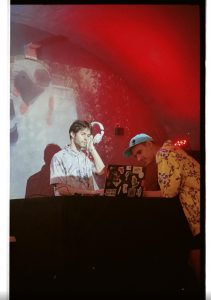
Figure 18: Cezar and Bincovski creating music, Chisinau (own photo)
Both Cosmos În Buzunar and Bincovski manifest concerns regarding the fact that the music industry in Moldova is monopolized by 4-5 rich producers, that don’t really allow younger artists to get their heads above the water. Overall, they believe the country’s adherence to the EU could solve or ameliorate some aspects, like: finding more experts in the domain, as Chișinău’s music industry lacks the basic “manager-booking agency-promoter” chain; receiving more financial support and grants, available to artists; and contributing more to building an inclusive and supportive environment for young artists to thrive.
Ultimately, all parties believe that Moldova joining the EU and Chișinău becoming an european capital will only benefit the artists in terms of receiving financial support, developing a more inclusive creative society and audience, enhancing the diversity of the city, and will allow the capital to step into the light with its creative potential. All the efforts made so far raised awareness about an open and inclusive society, offered the creative ones means for international collaborations and network-building, and changed the mindsets of thousands of moldavian people, making them more susceptible and open to variety and change where artists can thrive, express themselves freely and be authentic.
See More: Cosmos În Buzunar – Black Holes In My Brain https://www.youtube.com/watch?v=wl0R7TfxfjM
Bincovski – She https://www.youtube.com/watch?v=rGnb7L-s0KU
